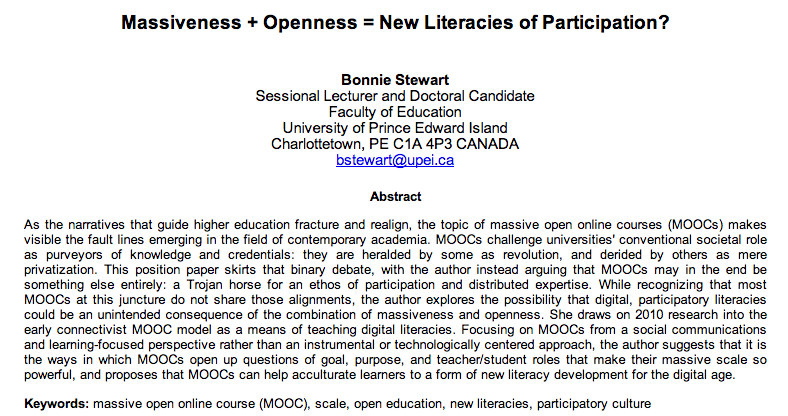I’ve always loved the idea of Epiphany as a holiday.
It’s partly the fact that it’s effectively a dead holiday, killed by its inconvenient placement after the commercial juggernaut that Christmas has become: even if Epiphany’s on your cultural radar, it’s most likely as a “best before” date for the Christmas tree. But Epiphany has the extra cool of being also a word, with a meaning that extends far beyond its origins in Christian tradition.
It’s the juxtaposition of this idea of “epiphany” and a day called Epiphany that delights me, as if one could just sit around every January 6th waiting for really good ideas to descend from the heavens.
Do NOT try this at home, kids. It’s disappointing. Very little truth in advertising from the epiphany camp, in my experience. And yet, pretty much any January 6th, I bet you could straw-poll half the English-speaking word nerds across the globe and find them secretly gazing expectantly at the skies, just in case. Some of us them would also be pointedly ignoring the abandoned-looking Christmas tree wilting in the corner of my their living room, but hey. Let us not speak of our others’ secret shames.
***
Anyway, yesterday I did not have one of the proper fancy epiphanies, with manifestations of God or anything – sorry, Mom. But I *did* have a moment where a series of disconnected thoughts finally clicked together and I realized, oh hey. I need to do something. I CAN do something.
Epiphanies – such as mine are, at least, which to say rather humble and not at all like visitations from The Lord, pity – remind of my kids’ toy trains. Except I seldom trip over them. But even scattered all over the floor…if you can get them into close enough proximity and the stars and magnets all align, snap! The pile is suddenly a single train, with some kind of directionality possible. Giddy up. These moments of transcendent synthesis are apparently the reason the word epiphany leaked over into secular usage in the first place, thanks to James Joyce (or at least so says Wikipedia, as my moments of transcendent understanding re Joyce are even rarer than manifestations of God).
Here’s how it went. Last week, at the end of 2013, I found myself loathe to write any kind of year in review post. I was no fangirl for 2013 or the general angst and disillusionment it left festering in me regarding academia and my own prospects after fifteen years teaching in higher ed. I figured this hesitancy on my part was no great loss to the world, but it left me thinking about what uncertainty does to voice, especially public voice. That was train car #1.
I’d also been thinking – as part of my ongoing dissertation research – about the conflicting concepts of success that circulate in academic networks and academic institutions, for lack of a less blunt distinction. I don’t believe the two are entirely separate – each has its broad constellations of semi-shared understandings, and there’s overlap – but my own experience of them is profoundly different, and I’ve been living in the middle of that and trying to unpack it. Cue train car #2.
Uncertain voice + muddled concepts of success = paralysis for a writer. For me, over the past year, it’s meant that my sense of myself as a writer has faltered to the point where I’d almost forgotten how central – and how hard-won – writing had been to me before I started half-taking this “scholarly” identity stuff seriously.
Train car #3 was, of course, a piece of writing. I published my first full-length peer-reviewed journal article last year, in JOLT. It’s ostensibly about MOOCs, but it’s far more a position paper exploring the possible decentering of top-down, teacher-centered concepts of education via massiveness, *if* – and it’s a big if – openness is fostered within MOOC structures (side note: HASTAC’s #Future Ed MOOC/movement launches this month and seems to be trying hard to actually do this).
Here’s the abstract, all official-like:
I wrote the paper almost a year ago now, but because I published it rather than blogging it, I’ve had little public conversation around the piece. It got tweeted a bit, and it’s been/being used in some cool open courses, which is wonderful and grand…but the kind of back and forth reflection that sometimes occurs here on the blog just never happened. And so when I was considering whether or not to use the article in the syllabus of my upcoming communications course and wondering, Bonnie seriously, isn’t that massiveness + openness stuff a bit idealized? I realized…I dunno. For years, my sense of my work has been that of a contribution to a conversation, a network. I didn’t notice how much I missed that. Until yesterday.
And then ye olde train cars of epiphany started to line up. CLICK.
I have spent the past year or so training myself painfully to try to write in all the forms my particular corners of the academy validate. I’ve done this rather blindly, as one aiming for desperate not-failure when one doesn’t have a clear enough picture of what success might be. And I have had success, in a sense – my proposal passed, my book contract was extended (sorry, JHU! MOOCs are…um…complicated), my paper’s been published. Other things are in the (slow) pipe. But in learning to write within the political economy of formal academic measures of success, I have lost something I valued.
I didn’t share most of what I wrote last year. It felt vulgar to shout “Looky here! Real live journal article!” so I didn’t blog about it. I stopped blogging about the book because the whole conversation about MOOCs got so fraught and so reductionist I didn’t really want to be in it, anymore. I didn’t share 90% of thesis proposal #2 until it was done, because the shame of struggling with academic writing seems a more terrible spectre than the shame of past-date Christmas trees. I don’t know how to talk about any of that stuff, or invite people into it. And so I’ve gotten lonely working away on my own because people are not in that stuff with me.
I’ve been researching hybrid scholars – people like me who are both cultivating some semblance of a traditional institutional academic identity and building connections and credibility for their ideas in online networks – but…and you may cue the laugh track here…I’ve been stumbling all over my own hybridity. I’ve been trying to be both networked scholar and proper academic, whatever that is. I’ve been trying to wear two entirely separate hats and engage in two entirely separate identity economies and…well, it’s a mug’s game.
And I don’t want to do it anymore. But. I’m not sure, frankly, which parts to drop.
That’s the hardest part about epiphanies, or at least the discount-version epiphanies I’m privy to…they’re never complete. A few trains line up and you pull ahead a bit and then some fall off or disintegrate or you crash into another and discover you need to change lines.
I want to make a career of scholarship in a time when the whole field of higher ed is practically in hiring freefall. I suspect, whether that ends up being my destination or no, I’l be – in the fine Myles Horton tradition – making the road by walking.
So I’m going to try to walk my way. I’m going to be hybrid.
If there’s anything to the premise that the potential of massiveness and openness = new literacies of participation, it’s those of us out here straddling the edges of old and new that will end up making and modelling those literacies, whatever they turn out to be worth.
And if you think that’s a ridiculous idea, I’d be ridiculously happy to engage in discussing it. Right here. Because neither an institution nor a journal can ever offer me the kind of space this blog does, for discussion of my work. They have their own spaces and values to offer, as do conferences and other conventions of legacy scholarship. I don’t think it’s either/or.
But if that’s true, we – I mean I – oughtta start acting like it, and stop re-enacting and internalizing artificial separations between spaces for knowledge production and learning.
After that, I’ll get that Christmas tree down.
Do you get stuck on the ‘shoulds’ of academic identity? How do you navigate fact that different and conflicting concepts of success and ‘good work’ are all currently in play? Do you think that’s always been the case, blogs or no?

